May 22, 2025 | 07:34 GMT +7
May 22, 2025 | 07:34 GMT +7
Hotline: 0913.378.918
May 22, 2025 | 07:34 GMT +7
Hotline: 0913.378.918
The Workshop on training bio-risk management for high-containment laboratories was conducted by the Department of Animal Health in partnership with the Health Security Partner of the United States and took place from July 31 to August 2.
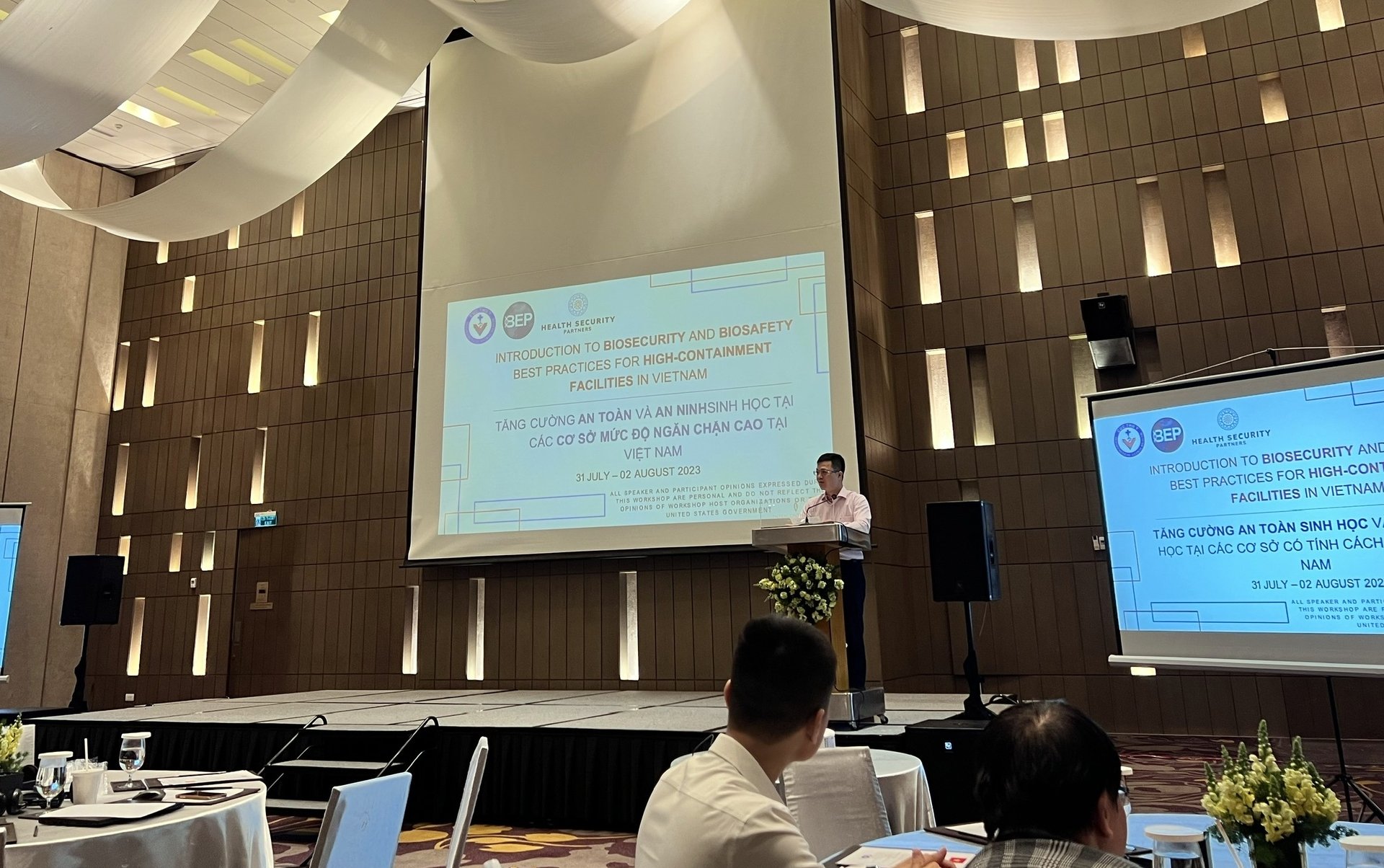
Mr. Nguyen Van Long, Director of the Department of Animal Health shared about the importance of biological risk management in veterinary laboratories today. Photo: KS.
This workshop represents a significant event in the field of bio-risk management within the veterinary industry. It brings together international experts from the HSP organization who specialize in various aspects of biosecurity, biosafety, and the design of biosafety laboratories, including high-containment biosafety laboratories. These experts actively participate in the training sessions, providing valuable insights and knowledge.
The event witnessed the attendance of leaders and officials from the Department of Animal Health, Veterinary technical centers affiliated with the Department, Regional sub-departments of Animal Health, and several research units in the domain. Additionally, representatives from certain private testing offices equipped with Level 3 biosafety laboratories were also present.
In addition, the Workshop witnessed the participation of delegates from various preventive healthcare agencies, including the Central Institute of Hygiene and Epidemiology, the Pasteur Institute in Ho Chi Minh City, Nha Trang Pasteur Institute, and the Central Highlands Institute of Hygiene and Epidemiology. These agencies possess Biosafety Level 3 laboratories and convened to exchange their respective experiences, in alignment with the "One Health" approach.
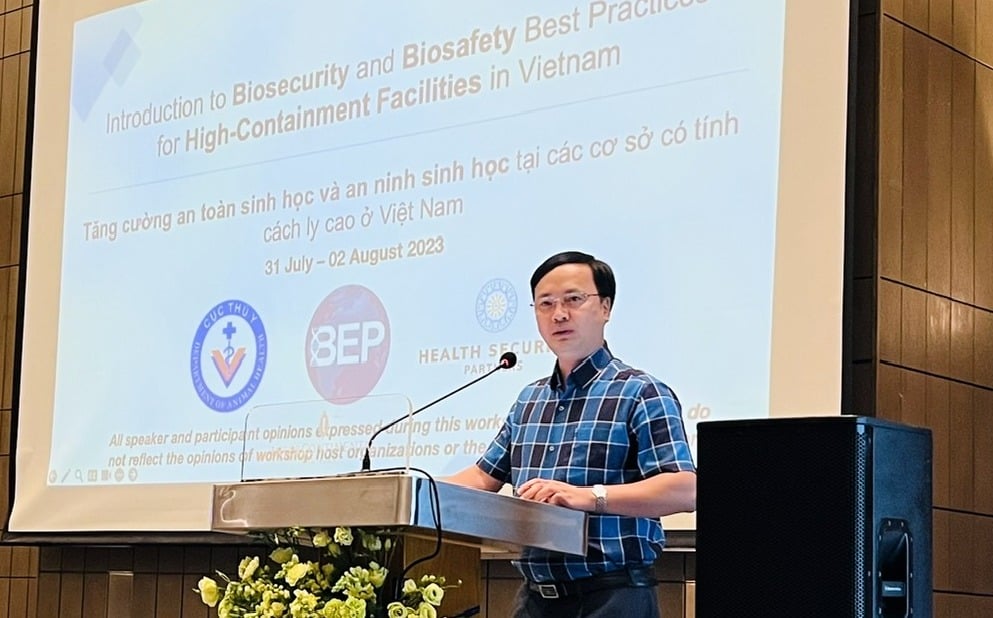
Mr. Phan Quang Minh, Deputy Director of the Department of Animal Health spoke at the Workshop. Photo: KS.
Nguyen Van Long, Director of the Department of Animal Health emphasized the importance of bio-risk management in veterinary laboratories when working with dangerous animal pathogens, pathogens that can be transmitted from animals to humans.
As per Mr. Nguyen Van Long's assertion, the health sector has formulated several regulatory matters pertaining to biosafety management in laboratories engaged in handling hazardous microorganisms. Nevertheless, certain regulations are deemed inappropriate for the particularities of testing practices within the field of veterinary medicine. Particularly concerning are the hazardous microorganisms that only induce illnesses in animals, alongside the insufficient regulatory measures governing animal disease laboratories operating at biosafety Level III.
Hence, the objective of the workshop is to provide an introduction to the regulatory frameworks and rules pertaining to biosafety and biosecurity at both national and international levels. This includes a focus on laboratory practices, prevention of animal diseases, and adherence to biosafety Level III standards.
Acquire knowledge pertaining to the procedural aspects involved in the construction of a biosafety level III animal disease laboratory. Additionally, the program offers practical training and facilitates the exchange of information pertaining to several subjects, including the selection of personal protective equipment (PPE), waste management strategies, the development of emergency response plans, the evaluation of security risks, and the attainment of biosafety level III certification.
The primary objective of the workshop was to establish prospective networks for collaboration and strengthen the national capability in biosecurity and biosafety.
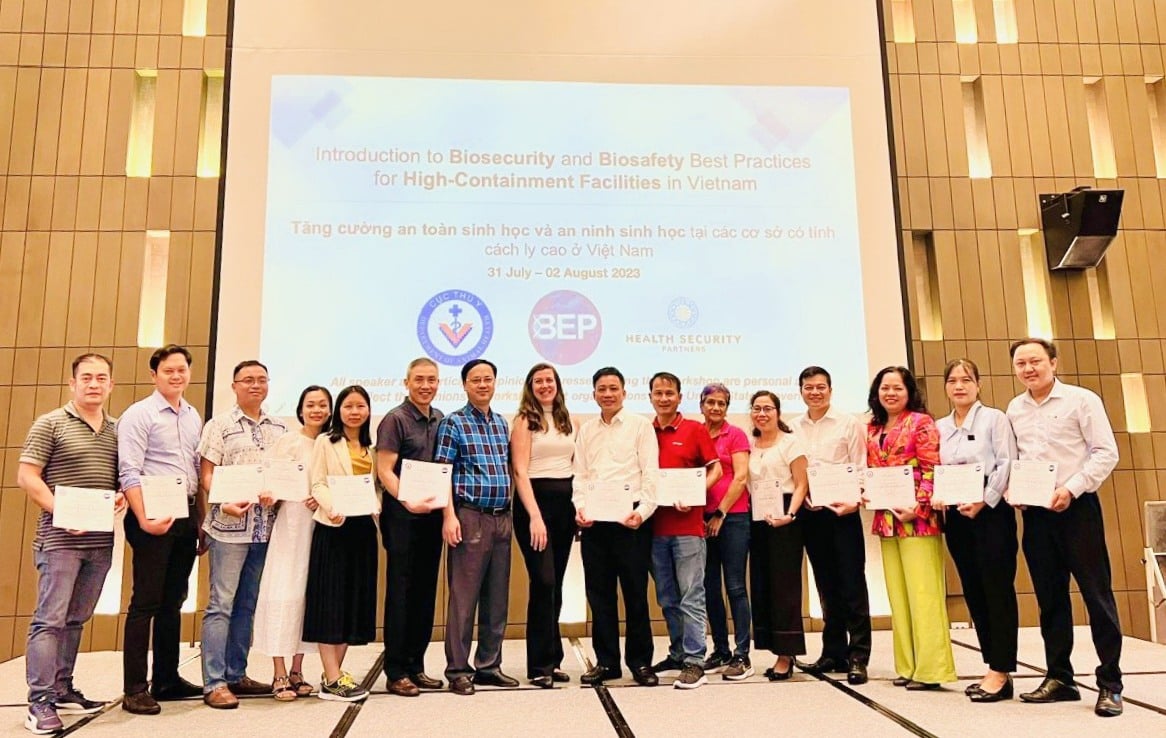
Leaders of the Department of Animal Health awarded certificates to trainees participating in the training workshop. Photo: KS.
Hence, it can be suggested that this event presents a valuable occasion for veterinary businesses to enhance their comprehension of the legislation and protocols pertaining to biological risk management within laboratory settings.
During the conference, a group of worldwide specialists from the HSP organization disseminated valuable insights regarding risk management and effective measures to ensure the safety and well-being of laboratory personnel. In doing so, it aids in mitigating the potential hazards associated with the release of hazardous pathogens from the laboratory, hence posing a threat to individuals, animals, and the surrounding ecosystem.
During the workshop, the delegates were presented with and provided feedback on the preliminary version of the Decree that aims to enhance the governmental oversight of testing operations in the veterinary domain.
This aids state management authorities in enhancing the risk management of laboratories and effectively managing their capacity throughout their involvement in veterinary testing endeavors.
This decree will serve as a significant legislative provision in the domain of veterinary medicine, addressing the existing dearth of laws pertaining to the biosafety management of veterinary labs.
Furthermore, there are laws pertaining to the granting of laboratory certifications within the domain of veterinary testing. These regulations serve the purpose of enhancing the efficacy of state governance in the realm of veterinary medicine, as well as ensuring the successful prevention and control of animal illnesses.
Translated by Linh Linh
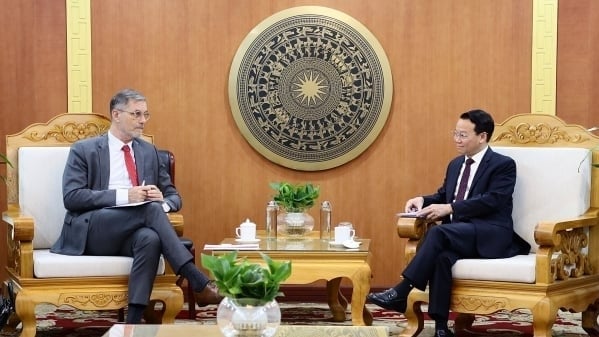
(VAN) On May 21, Minister of Agriculture and Environment Do Duc Duy worked with Mr. Olivier Brochet, Ambassador Extraordinary and Plenipotentiary of the French Republic to Vietnam.
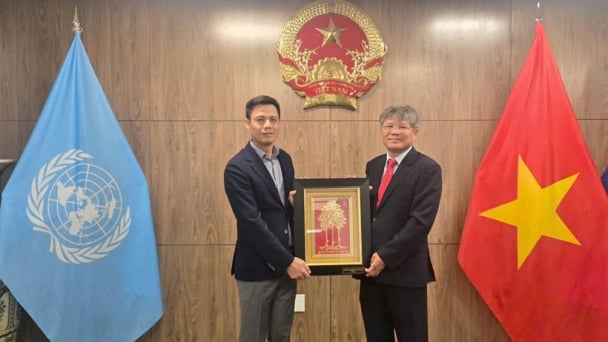
(VAN) VRG recently conducted a visit and working trip to the United States to demonstrate its efforts in redefining the role of rubber enterprises in the global value chain.

(VAN) In 2024, over 295 million people across 53 countries and territories faced acute hunger—an increase of almost 14 million people compared to 2023, while the number of people facing catastrophic levels of hunger reached a record high.

(VAN) World Environment Day 2025 (June 5) carries the theme 'Beat Plastic Pollution' continuing to emphasize the global urgency of addressing the plastic waste crisis.

(VAN) This was the assessment shared by experts at the workshop titled 'Assessing the Role and Potential of Low-Emission Rice Production Systems in Vietnam,' held on the morning of May 19.

(VAN) Cai Rong Port is the fisheries control center of Quang Ninh, helping to monitor fishing vessels, combat IUU fishing, and remove the EC's 'yellow card'.

(VAN) The German Agricultural Society (DLG) explores the possibility of establishing a mechanization service center in Vietnam’s Mekong Delta to support farmers in accessing and utilizing advanced machinery.